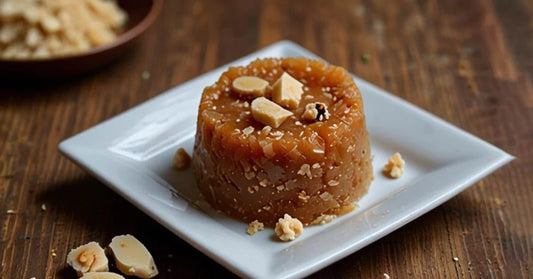Chia Seeds vs Sabja Seeds: Nutritional Powerhouses & Sabja Seeds Benefits
Introduction
In the realm of superfoods, chia seeds and sabja seeds have emerged as nutritional powerhouses, each offering a unique profile of health benefits. These tiny seeds, packed with essential nutrients, have become increasingly popular additions to balanced diets worldwide. In this comprehensive guide, we'll delve into the fascinating world of chia seeds and sabja seeds, comparing their nutritional content, health advantages, and practical applications to help you make an informed decision about incorporating these seeds into your daily routine.
What Are Chia Seeds?
Chia seeds (Salvia hispanica) are small, oval-shaped seeds originating from a flowering plant in the mint family. Native to central and southern Mexico, these seeds have been cultivated for centuries, tracing back to ancient Aztec and Mayan civilizations. Chia seeds are renowned for their ability to absorb liquid, forming a gel-like substance that makes them a versatile ingredient in various recipes.
Nutritional Profile of Chia Seeds
Chia seeds are rich in essential nutrients, making them a valuable addition to a balanced diet. Their impressive nutritional content includes high levels of dietary fibre, protein, and omega-3 fatty acids.
Here's a breakdown of the key components per 28g (1 oz) serving:
- Calories: 138
- Protein: 4.7g
- Fat: 8.7g
- Carbohydrates: 12g
- Dietary Fibre: 9.8g
- Calcium: 179mg
- Iron: 2.2mg
- Omega-3 fatty acids: 5g
What Are Sabja Seeds?
Sabja seeds, also known as basil seeds or tukmaria, are derived from the sweet basil plant (Ocimum basilicum). These seeds are native to India and have been a staple in traditional Ayurvedic medicine for centuries. Sabja seeds are similar to chia seeds in their ability to absorb water, but they are a bit larger and more oval in shape, often appearing in a mix of grey, black, and white colors. Sabja seeds benefits include weight management, improved digestion, and enhanced overall wellness.
Nutritional Profile of Sabja Seeds
Sabja seeds boast an impressive nutritional content, offering a range of essential nutrients that contribute to their health benefits. Here's a breakdown of their nutritional profile per 28g (1 oz) serving:
- Calories: 110
- Protein: 6g
- Fat: 2.5g
- Carbohydrates: 18g
- Dietary Fibre: 7g
- Calcium: 300mg
- Iron: 2.7mg
Chia Seeds vs Sabja Seeds: A Comprehensive Comparison of Health Benefits
Both chia and sabja seeds offer a myriad of health benefits, making them highly recommended for weight loss, improved digestion, and overall wellness. Let's explore how these nutritional powerhouses compare in various aspects of health:
1. Weight Management
Chia Seeds for Weight Loss
Chia seeds are excellent for weight management due to their high dietary fibre content and ability to absorb water. When consumed, they expand in the stomach, promoting satiety and potentially reducing overall calorie intake. A study in the Journal of Nutrition found that regular chia seed consumption led to significant reductions in body weight and waist circumference in overweight individuals.
Sabja Seeds for Weight Loss
Sabja seeds also support weight loss efforts by promoting feelings of fullness and reducing appetite. Their high fibre content slows digestion, helping you feel satisfied for longer periods. Additionally, sabja seeds contain compounds that may help boost metabolism and promote fat oxidation. Sabja seeds benefits extend to weight management.
Verdict: Both seeds are beneficial for weight management, with chia seeds having a slight edge due to their higher fibre content and more extensive research backing their weight loss benefits.2. Blood Sugar Regulation
Chia Seeds for Blood Sugar Control
The high fibre content in chia seeds slows down the absorption of sugar in the bloodstream, helping to prevent spikes in blood glucose levels. A study published in Diabetes Care demonstrated that consuming chia seeds with high-carbohydrate meals resulted in lower postprandial blood sugar levels compared to meals without chia seeds.
Sabja Seeds for Blood Sugar Control
Sabja seeds may also help regulate blood sugar levels due to their fibre content and potential insulin-sensitizing effects. However, research on sabja seeds and blood sugar control is less extensive compared to chia seeds. Sabja seeds benefits also include aiding in blood sugar regulation.
Verdict: Chia seeds have more scientific evidence supporting their blood sugar-regulating properties, making them a preferred choice for individuals concerned about diabetes or blood sugar management.3. Heart Health
Chia Seeds for Cardiovascular Wellness
Chia seeds are rich in omega-3 fatty acids, particularly alpha-linolenic acid (ALA), which has been shown to reduce inflammation and support cardiovascular health. Research published in the Journal of the American Heart Association found that regular chia seed consumption led to improvements in blood pressure and reduced inflammatory markers in adults with hypertension.
Sabja Seeds for Heart Health
Sabja seeds contain antioxidants and flavonoids that may help protect against oxidative stress and support overall cardiovascular function. They also provide potassium, which is essential for maintaining healthy blood pressure levels. Sabja seeds benefits contribute to heart health.
Verdict: While both seeds offer cardiovascular benefits, chia seeds have a more substantial body of research supporting their positive effects on heart health, particularly due to their high omega-3 fatty acid content.In conclusion, both chia seeds and sabja seeds are nutritional powerhouses that can significantly enhance a balanced diet. Their unique profiles of essential nutrients, including dietary fibre, protein, and beneficial fats, make them valuable additions to any health-conscious eating plan. Whether you're looking to support weight loss, manage blood sugar levels, or improve heart health, incorporating these seeds into your daily routine can provide a wide range of health benefits. As always, it's advisable to consult with a healthcare professional before making significant changes to your diet, especially if you have pre-existing health conditions.














